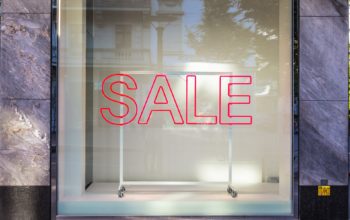Almost all entrepreneurs are naive when they first start. They have this idealistic notion that, because they have a great product or business idea, it’s going to take over the world overnight. The truth is that even the businesses that seem like overnight sensations weren’t built that way. Building a successful brand is as much about trial and error as it is about having a great product and a winning business strategy.
One of the things that hold many entrepreneurs back is that they don’t take the time to put together a strategy to run their company and facilitate its growth. There’s an old saying in business that goes, “If you fail to plan, then you plan to fail,” and you don’t want to find out the hard way how true that statement is. Continue reading to learn some business strategies you should consider implementing to take your business to the next plateau.
Always learn.
One of the things that set entrepreneurs apart from regular business owners is their willingness to expand their horizons and put capital into their business to try new, innovative ways to grow. Another thing that sets entrepreneurs apart is that they’re always learning. No matter what industry you go into, you need to have the mindset to accomplish two things. The number one thing you should be looking to accomplish is to compete with the top brands in your market. Your other goal should be to shape that market by being innovative and providing products and services your top competitors don’t. That means you should always be learning and setting goals.
Objectives and key results (OKR) software is the leading type of software for setting goals and tracking a company’s progress in relation to those goals by measuring key results. It’s one thing to have OKR software, but the problem is that not many people actually know how to use it. It’s kind of like having a rocket even though you’re not an astronaut or rocket scientist. You have the fastest mode of travel known to man, but you don’t dare move it an inch. Workboard has seen this problem and is now offering OKR coach training as a solution.
What’s an OKR coach? An OKR coach can help their company use OKR software to set company goals, interpret metric data from key results, and use the data to fine-tune strategies. The good news is that once you have a certified OKR coach on your team, it’ll be like having an IT expert just for your OKR software.
Be diligent about maintaining thorough books.
The most important thing you have to watch out for as a business owner is your finances. Maintaining thorough records is critical to ensuring the integrity of your business. Everything hinges on their accuracy. The best way to keep a record of your finances is to track them across several budgeting and accounting platforms.
With ReconArt software, you can reconcile your financial records with accuracy to ensure that your finances are exactly where they should be. Periodically, you should reconcile your supplier invoices, revenue, and other operational costs, so you can pinpoint where your bottom line is being hurt the most and implement changes.
If it sounds like reconciling your accounts is a painstaking process, that’s because it is. But ReconArt software employs automation to handle that headache for you. To learn more about how this enterprise software can help you manage your eCommerce accounts better, visit reconart.com.
If you’re wondering how to improve your finances, it starts with keeping thorough financial records and reconciling them regularly. When you know your accounts are accurate, you can begin implementing strategies to increase your profit margins.
It’s better to have too much supply than too little.
If this pandemic has taught us anything, it’s that it’s better to be overstocked than understocked. Entire stores found themselves void of everyday products like tissue, disinfectant spray, hand sanitizer, and bread. While there isn’t much in the way of supply that could’ve been done to prevent the shortages that ensued following the pandemic panic, there was a valuable lesson to be learned there about the importance of making sure that you always have what people want and need most.
One way to avoid running out of your most popular products is to establish relationships with more than one supply chain. Things happen in business, even to suppliers. It would be best to make sure that something bad happening to your supplier isn’t enough to shut down your operation. The only way to do that is to have diversity in your supply lines. In other words, you should have backup suppliers for when the unexpected happens to your primary supply chain.
If you begin running out of space to store your inventory, you should put your overstock in climate-controlled self-storage. US Storage provides 24-hour access to their storage units, and they operate all over the United States. They have self-storage units in San Diego and New York City, and their rates are among the best you’ll find from coast to coast.
It’s better to run out of space to store your inventory than to run out of inventory. Be sure to diversify your supply line so that you’re never scrambling for a way to try to meet the demand for your most popular products, and load up enough back stock for rainy days.
Always be on the lookout for opportunities to solve problems.
The most successful businesses don’t stop at providing the highest quality of products and services. In fact, if that’s all they did, then they wouldn’t be the most successful businesses.
One thing companies that lead their respective industries have in common is that they all solve problems that are bigger than their business. Vivek Ramaswamy, CEO of Roivant Sciences, is a firm believer that many of the greatest problems facing society, like COVID for example, are better solved in the private sector. Why is that? Private companies have the pressure of having to compete with others in their industry for supremacy, which adds an extra incentive to see that your product is the safest and most effective.
If you’re diligent and willing to learn, you can be successful, even as an entrepreneur building a new business from the ground up.




